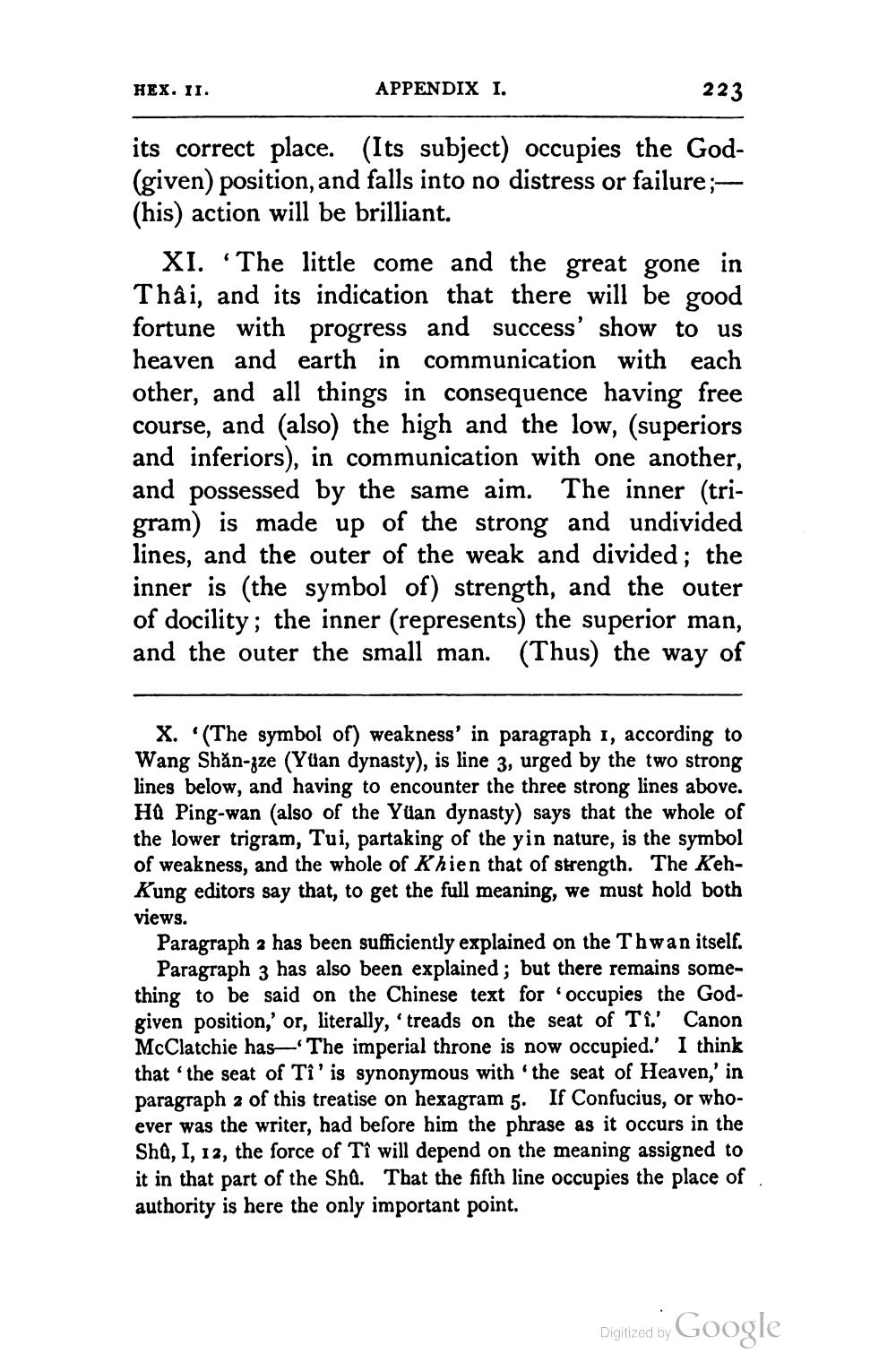________________
223
its correct place. (Its subject) occupies the God(given) position, and falls into no distress or failure;— (his) action will be brilliant.
HEX. II.
APPENDIX I.
XI. The little come and the great gone in Thâi, and its indication that there will be good fortune with progress and success' show to us heaven and earth in communication with each other, and all things in consequence having free course, and (also) the high and the low, (superiors and inferiors), in communication with one another, and possessed by the same aim. The inner (trigram) is made up of the strong and undivided lines, and the outer of the weak and divided; the inner is (the symbol of) strength, and the outer of docility; the inner (represents) the superior man, and the outer the small man. (Thus) the way of
X. (The symbol of) weakness' in paragraph 1, according to Wang Shǎn-zze (Yüan dynasty), is line 3, urged by the two strong lines below, and having to encounter the three strong lines above. Hû Ping-wan (also of the Yuan dynasty) says that the whole of the lower trigram, Tui, partaking of the yin nature, is the symbol of weakness, and the whole of Khien that of strength. The KehKung editors say that, to get the full meaning, we must hold both views.
Paragraph 2 has been sufficiently explained on the Thwan itself. Paragraph 3 has also been explained; but there remains something to be said on the Chinese text for occupies the Godgiven position,' or, literally, 'treads on the seat of Ti.' Canon McClatchie has 'The imperial throne is now occupied.' I think that 'the seat of Tî' is synonymous with 'the seat of Heaven,' in paragraph 2 of this treatise on hexagram 5. If Confucius, or whoever was the writer, had before him the phrase as it occurs in the Shû, I, 12, the force of Tî will depend on the meaning assigned to it in that part of the Shû. That the fifth line occupies the place of authority is here the only important point.
Digitized by
Google




